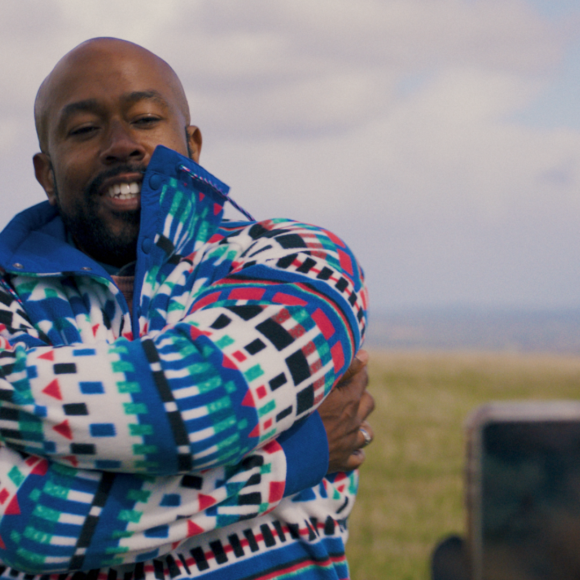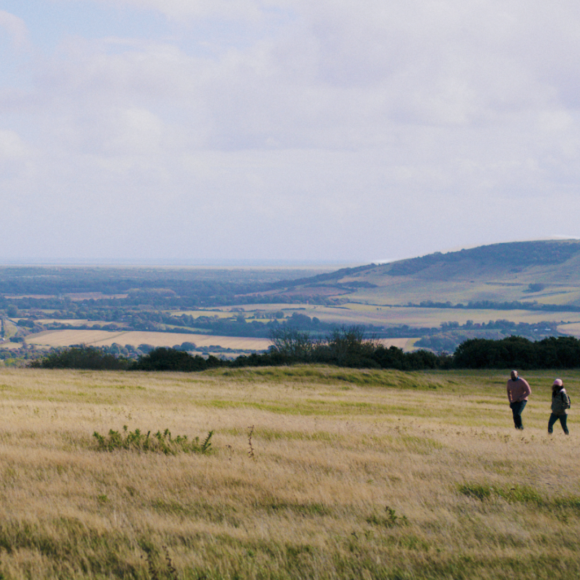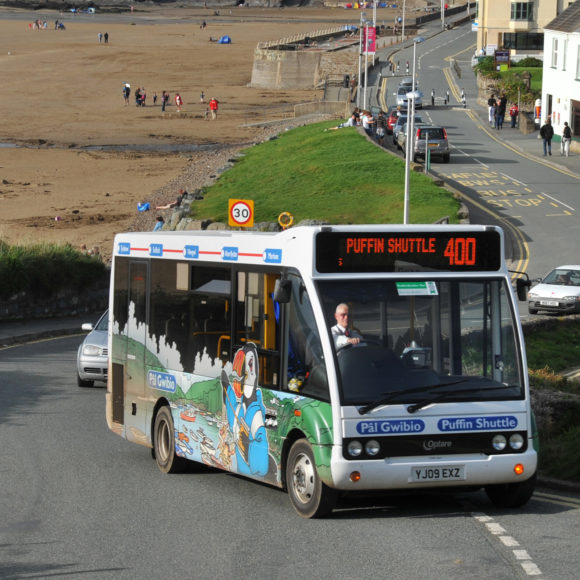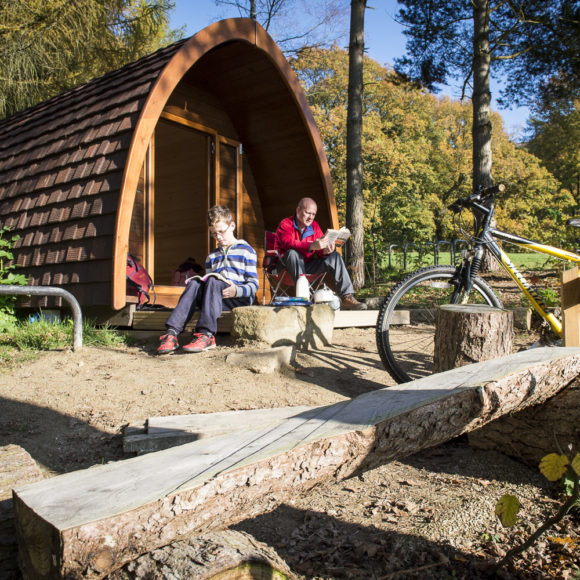Be more
We can all be more outside. More healthy, more creative, more in touch with the natural world and each other. Our connection to nature is part of being human and that instinct has led to record numbers of people visiting National Parks in recent years, many of them for the first time.
We’re delighted that more people are exploring how to be more outside: whether that’s by visiting National Parks or getting out into green spaces closer to home. This page is especially focused on helping new visitors get the most out of their adventures and perhaps is a useful reminder to some regular visitors too.
Did you know?

Dress the part
They say there’s no such thing as bad weather, only unsuitable clothing. You don’t need to spend big bucks on top of the range technical gear to explore National Parks. You do need to be able to carry suitable clothing for the conditions you might face. Check with National Parks for their advice on what you might need depending on your plans and the season. Hot and sunny in a valley can quickly turn to cold and wet if you climb just a few hundred feet.

Getting there
If you are travelling by car it’s important to check that parking is available at your intended destination. Check the website of the National Park you are visiting. Most National Parks will update you on availability via social media. It’s always worth considering using public transport as this is often the best way to guarantee you can get to where you are going…and it’s more environmentally sustainable.
Q. Do you have to pay to get into a National Park?
Not in the UK. Our National Parks were founded in the same post war social reforms that saw the creation of council housing and the NHS. They are free at the point of access and are also the homes and workplaces of millions of UK citizens.
Q. What is the Countryside Code?
Whenever you are visiting the countryside, it’s important to follow the Countryside Code. This helps keep you safe and also protects the wildlife and landscapes that you’re visiting. You can download a short version here. Scotland has its own version called the Outdoor Access Code which you can find here.
Q: Who collects the rubbish?
National Parks Authorities don’t actually own much of the land or infrastructure in National Parks. If you put your rubbish in a bin it will usually be the local authority that collects it. If you drop it in the countryside it is no one’s job to pick it up. A volunteer might, or a member of the public, but just as likely it’ll be a rare bird, a squirrel or a deer. Come to National Parks with the plan to take all your rubbish home.
Q. But it’s OK to drop biodegradable waste like banana skins in the countryside, isn’t it?
Nope. That skin will take ages to decompose and until then it is something in the natural environment that shouldn’t be there. Take it home too. Make a pledge to yourself before you go to a National Park that when you leave no one will be able to tell you’ve visited.

Know the way
You can’t rely on having a phone signal in National Parks let alone WiFi…even on well trodden paths. The most experienced outdoor adventurers would never rely on a single means of navigation – and they might be sporting a GPS watch that cost thousands of pounds. The National Parks all have great routes, guides and maps. Many of these are designed especially for the least experienced walker and map reader. Don’t set off without one.
Q. Are there Rangers around to help me if I get lost?
National Parks do employ Rangers – in Scotland they are called Wardens – their role is involves a broad range of things but one of them is not to roam the National Park acting as guides; there’s just too much ground to cover with National Parks accounting for 10% of the landmass of the UK.
Q. Can I get WiFi in National Parks?
Not unless its supplied by your accommodation or the pub you’re sitting in. You might not even get a phone signal.
Q. Should I always shut gates in the countryside?
The Countryside Code says that gates should be left the way you find them. If they are open, leave them open.
Q. As a taxpayer I can camp or party all night long in National Parks, right?
National Parks Authorities don’t actually own much of the land in National Parks. Most of it is privately owned and a great deal of it is particularly sensitive: either historically important or as a home for nature. You need to follow the guidance given by each National Park about camping, it can be quite restrictive but that’s with good reason. National Parks are definitely not festival sites.
Parks for all

Getting around
Even if you’re driving to a National Park it’s worth considering public transport as the last link in your journey. All of the National Parks have great guides and links to all the information you will need. And think about making the journey part of the adventure. Ferries, e-bikes, traditional bus routes and railways make for magical memories and a different way to connect with nature.

A bed for the night
You can find accommodation to suit every budget and taste in the National Parks. There are luxury hotels, cosy rental cottages, traditional family run B&B’s and of course the best way to get closest to nature – camping. Just make sure you check on local restrictions and permissions. Youth hostels are a great, cost effective option, and not just for the young traveller. They often have friendly, knowledgeable staff who can help you explore.
Q. Can I have a camp fire to warm up or brew some tea?
Definitely not. Fires damage the landscape even if they are kept under control. Wildfires cause irreparable damage every year and endanger life and property. They can last for days.
Q. BBQs are OK though aren’t they? That’s what those disposable ones are for surely?
Leave the BBQ at home! Those wildfires…most of them are caused by BBQs, especially the single use ones. Some National Parks have started a campaign to ban them, they smoulder for ages and couldn’t be better at starting wildfires if they’d been specially designed for the task.
Q. Can I bring my dog to a National Park?
Please do, they’ll love it too. You need to keep them under control though and put a lead on when signs tell you to. There’s loads of areas with ground nesting birds and even the best behaved dogs will struggle to curb their natural instincts. And it goes without saying, if your dog does a poo – anywhere – bag it and bin it.
Explore your self
National Parks are designed - exist - to help you do new things, collect new experiences, make memories. They are the ideal place to try something new. No gear? No idea? No problem! The National Parks are full of people and organisations who love to introduce newbies to the hobby or landscapes they are passionate about. They'll supply the kit and know how. All you've got to do...is you.

